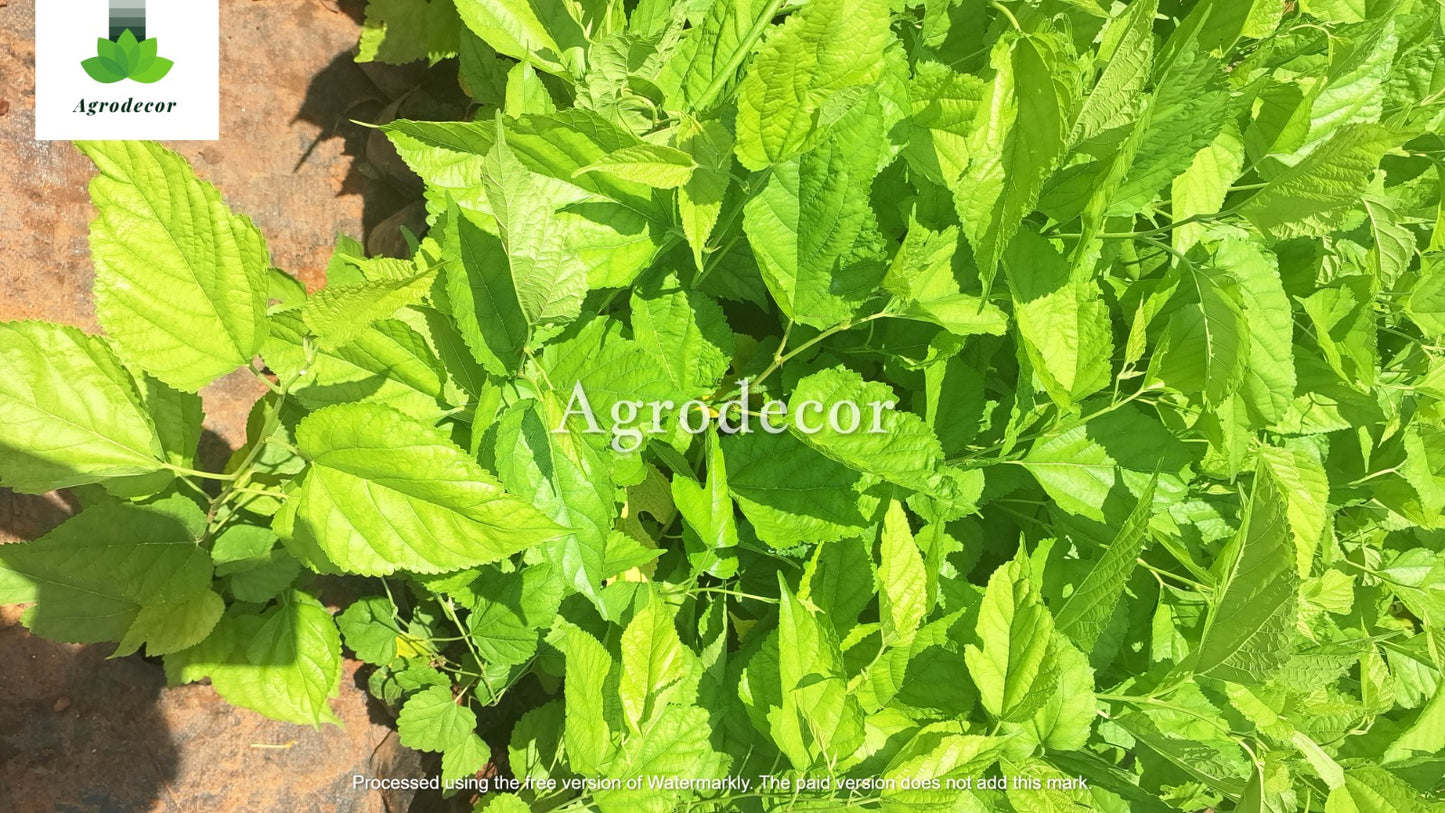Mulberry
Mulberry
Couldn't load pickup availability
Silkworm farming (sericulture): Leaves are the primary food.*Fruit production: Edible berries are rich in vitamins and antioxidants.*Medicinal: Used in traditional medicine for diabetes, inflammation, etc.*Fodder plant: High-nutrient leaves for livestock.
Care Tips for Mulberry:
*1. Sunlight:
Requires full sun (6–8 hours of direct sunlight daily) for optimal leaf and fruit production.
*2. Soil:
Prefers well-drained, loamy soil, but adaptable to a variety of soil types.pH range: 5.5 to 7.5
*3. Watering:
Water regularly during the growing season, especially in dry climates.Do not allow waterlogging—mulberry roots don’t like standing water.
*4. Fertilizer:
Apply well-rotted manure or compost during planting.Use balanced NPK fertilizer (10:10:10) or nitrogen-rich fertilizer for leaf production.
*5. Pruning:
Prune in late winter or early spring to promote bushier growth and higher leaf yield.Helps manage plant shape and remove dead/diseased wood.
*6. Pests & Diseases:
Watch out for mealybugs, aphids, and fungal leaf spot.Use neem oil or appropriate organic pesticide if needed.
*7. Harvesting Leaves:
Regular harvesting promotes fresh growth.Ideal for silkworm rearing when leaves are tender and nutrient-rich.
Share


